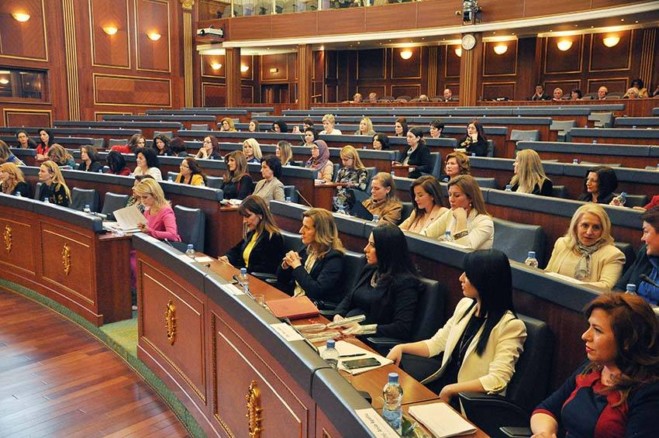Gradually doing away with the prejudgment of politics as a ”men’s job”
29 Apr, 201794 0 0
There have been and still are women in our political sphere who are not afraid to face the many challenges that they face during their career, and thankfully Mimoza Kusari-Lila, a former minister in the Kosovo government, and now the mayor of Gjakova, is not isolated.
Being a public figure in the Kosovo society, however, remains challenging, especially for women. Apart from assignments and responsibilities that are required from their political position, they should also bear on their shoulders the weight of criticism and prejudices in society, in general.
Fjolla Hajrizaj, a journalism student at the University of Prishtina (UP), sees as a challenge the very fact that she is female, which could make her feel unequal to her male colleagues. Among the many challenges for women involved in politics she points out prejudices by society. One of them being quite a common perception that women who engage in politics have not arrived there due to their skills, but rather because they are “cherry-picked by their bosses”.
Kusari-Lila agrees with the fact that we as a society are very prejudiced, especially in relation to women and their role in society. She thinks that the involvement of women in politics is a topic never sufficiently consumed, and adds that this is compromising the values based on which women are brought up.
But are women given the opportunity to engage in the public sphere, especially in politics, and is their participation is exclusively determined by the gender quota, as in the case of the Assembly of Kosovo, where according to the law, 30 percent of the total 120 members of the parliament must be women. Kusari-Lila considers that there are two major challenges in decision making: gender equality and inclusion of young people, barriers which in Balkan culture continue to further cement by each day.
She also considers that the challenge does not begin with the moment of involvement in politics.
While Miranda Molliqaj, chemical engineering student at the UP, does not regard the fact that she is a woman as a challenge.
“What I consider to be challenging are the goals that we set before us, and then the path full of challenges in the implementation of those goals, which all along requires consistency, passion, and above all strength to continue all these fragments of individual formation, “she says.
Kusari-Lila regards the perception that “whether they want to be identified among most hated people?!“, as yet another challenge for women who want to get into in politics. She, however, encourages them to engage in politics because “it is good for everyone to learn, not the feeling of power, but rather how institutions are formed and how they function.”
On the other hand, Molliqaj is optimistic about the fact that stereotypes of women’s participation in all spheres of life are being broken, and now is the crucial moment for women to get involved in politics and display their skills and values.
“I feel satisfied that by each day we are achieving an awareness on the state-level about the interaction between the two sexes, where men and women share the responsibility in family life, as well as in the office.”
Hajrizaj, too thinks that women should be involved in politics since they can be successful, and especially for those, who have skills, politics is the area that may provide the ground to get to the point they want to reach.
“I would advise them to first reach a higher intellectual level, and secondly to become part of decision-making and help society. The should not allow prejudice to destroy their will to get involved into politics”.
Liridona Berisha








